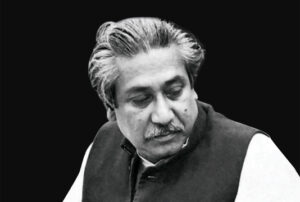Jawed Naqvi
THIS is for my Pakistani friends who have often told me they see shades of Imran Khan in Arvind Kejriwal and for some Indian friends who have borrowed that view and propagate it as their own. In other words, they see the Indian anti-corruption icon as a flash in the pan with an erratic judgement of realpolitik.
I have just returned from the scorching heat of Varanasi where Arvind Kejriwal with his intensive door-to-door campaigning is shrewdly challenging Narendra Modi’s expensively advertised and mostly media-backed electioneering.
Together with his unparalleled money power, Modi has the cadre of the Hindu revivalist Rashtriya Swayamsevak Sangh to canvass for him, but they are finding it difficult to cope with Kejriwal’s simple, compelling messages to the voters. Hence the fear of a major incident stalking the election as the Hindu right-wing’s last resort, to polarise the remaining contests.
About 105 seats are still to go in the last two legs of the long electoral exercise, and the violence in Assam is a clear indicator that the Congress and the BJP are worried and therefore getting desperate. Their worry is not so much that Kejriwal will defeat them, but the assessment that he is making a substantial dent in their traditional votes.
A conservative estimate an Aam Aadmi Party leader shared with me puts the party’s winning expectations at 15 out of about 400 seats they are contesting in. None of this figures in any opinion poll. Imagine the surge in the quality of debate in parliament if that estimate turns out to be correct, or if AAP gets even more MPs than expected.
The Congress and the BJP have traditionally benefited from the stand-off between Assam’s Bodo tribespeople and its Muslims, many originally from Bangladesh. The Bodos are a poor agrarian people with a legitimate grouse that they have no land of their own.
They borrow the BJP’s narrative that Muslims have usurped their share of Assam’s resources. If the Congress expects to gain Assamese votes from last week’s murder of 34 Muslims, Modi too wasted no time to spread his divisive venom. Hindus from Bangladesh were welcome. Muslims were not, he declared in West Bengal, where 23 crucial races are still to be decided.
Imran Khan was a household name when he joined politics with a stated intent to clean up widespread corruption. Arvind Kejriwal, far from being the youthful or charismatic sportsman that Imran was, struggled to win the confidence of the initially small but now a steadily growing number of admirers. They see him as a hardworking, doggedly sincere politician, whose aims might seem similar to Imran’s but are in fact quite dissimilar in form and content.
Unlike Imran, Kejriwal is not a rich man; also he is diabetic and awkwardly coughs into the mike when addressing a rally or a press conference. There are more compelling dissimilarities. Kejriwal is perceived as a liberal man, unwilling to make a compromise with communalism. His watchwords are that he is anti-corruption, anti-criminalisation of politics and is against the rule of families in politics.
There are other criteria I became familiar with during my Varanasi sojourn. There is no central high command in the AAP. The party structure follows a bottom to top approach where the council members elect the executive body and also hold the power to recall it. No AAP MLA or MP will use red lights or any other beacons on their vehicles.
And, this will be a particular challenge for Imran: no MLA or MP of AAP is allowed any special security. “We believe that elected people’s representatives need the same security as a common man,” the AAP’s book of rules says. No MLA or MP of the party will live in opulent and luxurious government housing.
No one would need to buy an election ticket in the party. The people of that area will select candidates contesting elections from their constituency.
On financial transparency, its every single rupee collected by donations is publicly declared on the party’s website and all expenditures are claimed to be declared on the website.
The range of committed women who have been given tickets in these elections by the AAP particularly impresses me. I met Dayamani Barla in her Maoist-dominated constituency of Khunti, a forest region in the Jharkhand state whose ecology is threatened by corporates that want its rich natural resources.
Barla, a former housemaid, has successfully fended off their bids to encroach on tribal land and has been jailed and also won international awards for her work. Barla is of humble origins and runs a small teashop in Ranchi to make ends meet. If she doesn’t win as the AAP’s candidate, she would still have made inroads into democratic politics on behalf of the least discussed election issue: the fear of corporate loot with Modi’s support in the protected tribal areas of India.
Soni Sori, who was sexually tortured in jail for her alleged links with Maoists in Chhattisgarh is another tribal candidate for the AAP. Environment activist Medha Patkar links up with several prominent women, including a successful banker, a former journalist with CNN, and a well-regarded actress, among other women, to give the AAP an unusual gender-based advantage. I doubt if Imran Khan can come anywhere near that for gender equality.
An internal ombudsman, comprising three jurists of stature, will subject AAP candidates to scrutiny for moral probity. There’s more to say, but I’ll stop here.
(The writer is Dawn’s correspondent in Delhi.jawe dnaqvi@gmail.com) via EIN News



